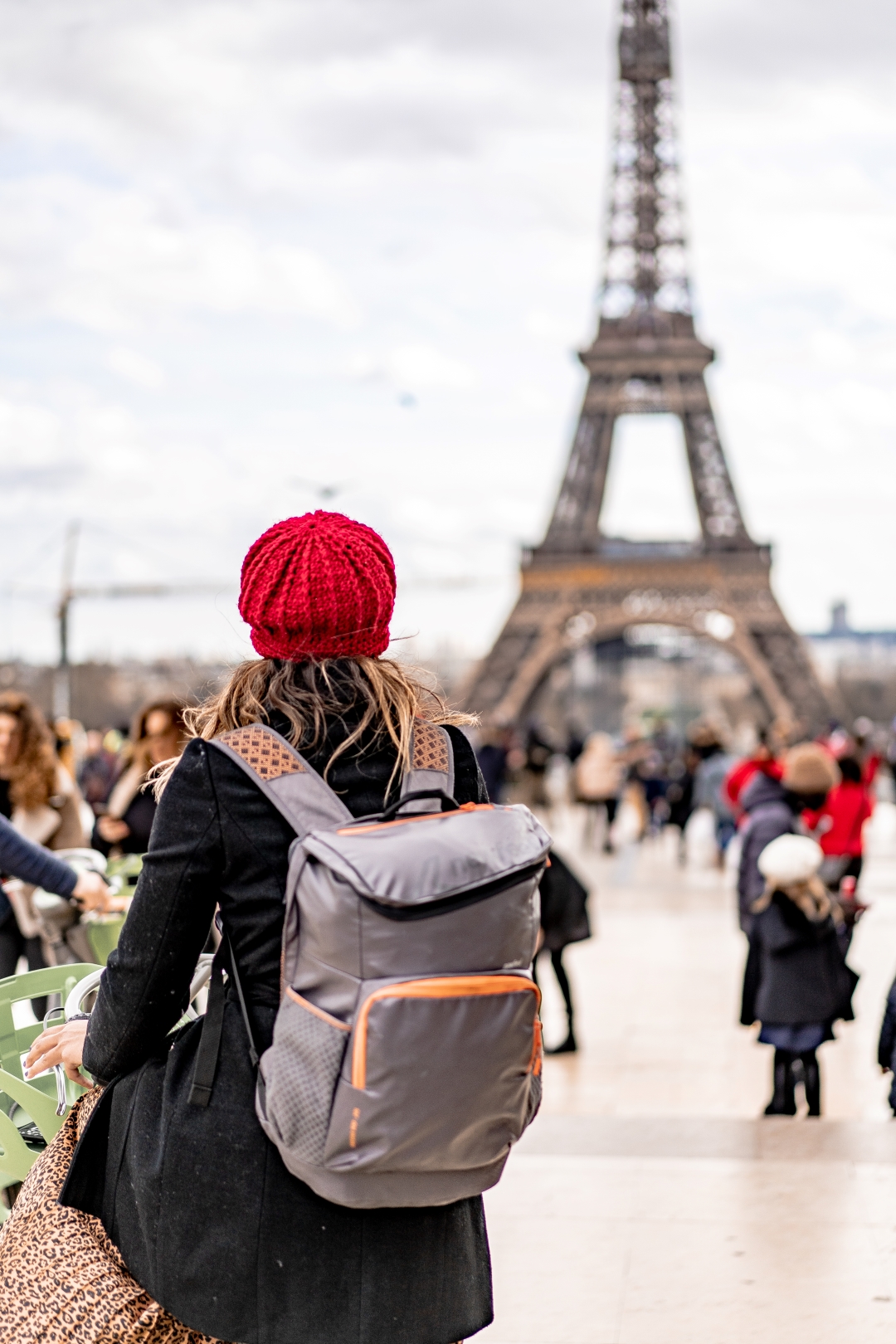Are you planning a trip to the beautiful country of France? Ensure a worry-free and safe travel experience by following these 10 essential tips. Whether you’re exploring the enchanting streets of Paris or savoring the countryside, our guide will equip you with the knowledge and confidence to navigate French culture and customs. From staying vigilant in crowded places to mastering basic French phrases, our power-packed advice will make your journey a breeze.

- 10 Tips For Safe Travel in French
- 1. Learn Basic French Phrases:
- 2. Pack Smart And Light:
- 3. Stay Aware In Crowded Areas:
- 4. Master Public Transportation:
- 5. Respect Local Customs:
- 6. Emergency Contacts:
- 7. Try Local Cuisine Safely:
- 8. Stay In Safe Accommodations:
- 9. Know The Local Laws:
- 10. Travel Insurance:
10 Tips For Safe Travel in French
1. Learn Basic French Phrases:
One of the keys to a successful and safe trip to France is to familiarize yourself with basic French phrases. While many people in tourist areas speak English, making an effort to speak the local language can go a long way in enhancing your travel experience. Start by learning simple greetings like “Bonjour” (good morning), “Bonsoir” (good evening), and “S’il vous plaît” (please). Knowing how to say “Excusez-moi” (excuse me) and “Parlez-vous anglais?” (Do you speak English?) can be incredibly helpful when seeking assistance.
2. Pack Smart And Light:
When it comes to packing for your trip to France, less is often more. Traveling with a heavy suitcase can be cumbersome, especially if you plan to move between cities or explore on foot. Opt for versatile clothing items that can be mixed and matched to create various outfits, reducing the need to pack excess clothes. Additionally, consider the weather and season during your visit and pack accordingly. Don’t forget essentials like a universal power adapter, a portable charger, and a comfortable pair of walking shoes.
3. Stay Aware In Crowded Areas:
France, especially popular tourist destinations like Paris, can get incredibly crowded. While enjoying iconic landmarks and bustling markets, be vigilant about your belongings. Invest in a secure crossbody bag or money belt to keep your essentials close and less susceptible to pickpocketing. Avoid displaying flashy jewelry and be cautious when using your smartphone in public areas. By staying alert and cautious, you can significantly reduce the risk of theft or loss.
4. Master Public Transportation:
France boasts an efficient and extensive public transportation system, including trains, trams, and buses. Familiarize yourself with the local transportation options in the city you’re visiting. Purchase transportation cards or passes if available, as they often provide cost-effective access to multiple modes of transit. Learning how to navigate public transportation not only saves you money but also ensures a smoother travel experience, allowing you to explore the city with ease.
5. Respect Local Customs:
Embracing local customs is a sign of respect and can help you connect with the French people on a deeper level. For example, when greeting someone, it’s common to kiss on both cheeks, even if you’re meeting for the first time. Be polite and use “Monsieur” (Sir) and “Madame” (Madam) when addressing people, especially in more formal settings. During meals, keep your hands on the table and try a bit of everything on your plate as a sign of appreciation for the cuisine. Engaging with these customs not only enriches your cultural experience but also ensures you are perceived as a respectful and considerate traveler.
6. Emergency Contacts:
While you hope for a smooth journey, it’s essential to be prepared for any unforeseen situations. Always carry a list of emergency contacts, including local authorities, your country’s embassy or consulate, and contact information for your accommodations. This information can be invaluable in case of theft, loss, medical emergencies, or any other unexpected events. Store digital copies of these contacts on your smartphone and keep physical copies in a safe place, separate from your main belongings.
7. Try Local Cuisine Safely:
Exploring French cuisine is an integral part of your trip. However, it’s important to do so safely. Stick to reputable restaurants and street vendors with good hygiene practices. Look for places with a bustling local crowd, as it’s often an indicator of quality. When trying something new, ask about ingredients if you have allergies or dietary restrictions. Avoid undercooked meats and seafood, especially oysters, which can cause foodborne illnesses. Drink bottled water, and be cautious with raw milk cheeses. While adventurous eating is encouraged, ensure it’s done responsibly to savor the flavors without any health concerns.
8. Stay In Safe Accommodations:
Choosing the right accommodation is crucial for your safety and comfort. Research hotels and lodging options before your trip, considering factors such as location, reviews, and security features. Opt for accommodations that have well-reviewed security measures, like electronic key card access, safes in rooms, and 24/7 front desk service. It’s also a good idea to check for fire safety equipment and emergency evacuation procedures. When you arrive, familiarize yourself with the layout of your accommodation, including emergency exits, so you can quickly respond to any unexpected situations.
9. Know The Local Laws:
Understanding and respecting local laws is essential to avoid legal issues during your trip. France has strict laws regarding littering, public intoxication, and smoking in certain areas. Familiarize yourself with these regulations to avoid fines or legal trouble. Additionally, be aware of local customs and traditions, such as dress codes when visiting religious sites like cathedrals and churches. Research and adhere to specific regional laws, as some areas may have unique regulations or restrictions.
10. Travel Insurance:
Don’t underestimate the importance of travel insurance. It acts as a safety net in case of unexpected events, such as trip cancellations, medical emergencies, or lost luggage. Before your trip, review your insurance policy to ensure it provides adequate coverage for your needs. Check if it includes medical coverage, coverage for lost or stolen belongings, and trip interruption coverage. Keep a copy of your insurance policy, including emergency contact information, with you at all times. In the event of an emergency, contact your insurance provider promptly to initiate the claims process.
Frequently Asked Questions (FAQ)
A: No, but knowing basic French phrases can be incredibly helpful for communication and navigating daily situations.
A: Use a crossbody bag or money belt, stay aware of your surroundings, and avoid displaying valuable items.
A: Yes, credit cards are widely accepted in France, but it’s a good idea to carry some cash for smaller purchases and places that don’t accept cards.
A: Call emergency services (dial 112), seek assistance at the nearest hospital, and contact your travel insurance provider.
A: Yes, tap water is safe to drink in most areas of France, but some people prefer bottled water for taste.
A: Look for places with a local crowd, good online reviews, and visible hygiene practices.
Final Word:
As we conclude our guide to safe travel in France, remember that preparation is your best ally for a worry-free journey. Armed with essential knowledge and practical tips, you can explore the enchanting streets of France with confidence. Are you ready to embrace the rich culture, savor exquisite cuisine, and create unforgettable memories? Will you immerse yourself in the beauty of this captivating country while ensuring your safety at every turn? Safe travels await, but the choice to make the most of your adventure is entirely yours. Bon voyage! Will you seize the opportunity to embark on a remarkable journey, fueled by the wisdom shared here, and create moments that will last a lifetime?
